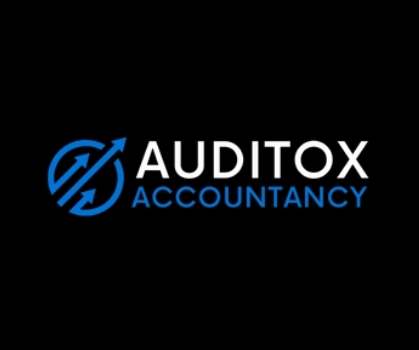- Home
- What are we
- Who we help
-
- How we help
-
-
-
- Accounting
-
- Advisory
-
- Business Support
-
-
- Resources
If you believe your company is eligible for R & D Tax Credits, make sure you get in touch today! Known as Research and Development Tex Credits, this form of tax relief is for those who invest in innovation within their companies. So if you are spending money on your company's optimizing an existing product, service, or process. Or, even developing a new product, service, or process, you can be entitled to an R & D Tax Relief.
Investing in a research and development project can be a hefty investment thanks to R & D Tax Credits you can reclaim some of the costs be it on staff (developers, engineers, etc.), some types of software, and many other qualifying parameters.
Contact Auditox today and see if you qualify and how much you can potentially reclaim today!

R and D relief is available for companies undertaking innovative work and tasks in the technology and science fields . The relief is available to small and large companies looking to research their industry or make advancements.
A project doesn’t need to be successful to be eligible for relief. An unsuccessful campaign is still eligible for support if it meets other criteria.
The work must relate to the company’s general trade or business. This can relate to the company's work or the work they hope to do if the R&D is a success. If you want to successfully impact your corporation tax liabilities, choose Auditox Accountancy.

If you are curious as to whether your organisation can claim for R D tax credits, check out the industries most commonly associated with these tax credits:
Of course, if your industry isn’t listed above, this doesn’t mean you need to miss out. Contact Auditox Accountancy, and we will see if there is a way for you to enjoy tax relief and tax credits from this scheme.

To obtain this tax relief, a company must explain how the project:
The project can focus on a developing products, a new service or way of working, or it could improve an existing issue.

The following steps provide more information on what the qualifying projects for R&D in the eyes of HMRC.

These credits are only applicable to limited companies operating in the UK that pay corporation tax.
It is important to note the qualifying research work should advance the sector or industry, not just a single firm. This prevents companies from benefitting by improving their working practice to use existing technology.
A project is eligible if it advances an existing product made by another firm, but only if this product isn’t freely available or is widely known.
There are simple ways to show that professionals in the industry cannot complete the work or task. One way to show this is to offer examples of failed attempts to complete the project. The company can also use current professionals to explain people's challenges and problems with the project or work.
An uncertainty, in the technological or scientific sector, focuses on whether an expert in the field can say if a task or project is possible or not. If a professional cannot explain the processes behind the project, there is uncertainty.
Companies should show they are unaware of how to achieve the end goal at the start of their work.
As you would expect, a company needs to detail the R&D research and development work. They also need to detail analytical steps and testing for the project.
The company should also explain how their work bridged the problem and resolved the uncertainty. Explaining the successes and failures of the work and how the company reached a conclusion is sufficient.
A company that uses skilled professionals such as scientists and engineers to modify or create products or services will be suitable for this grant. The same can be said for these firms which carry out specialist production processes.
Although some or most of the work will focus on R and D work, it is accepted these professionals will also carry out Business As Usual (BAU) work. This should be separated from R and D work when determining costs.
While each firm has unique challenges and costs, most of the costs will likely fall under these three areas:
Consumable items refer to physical materials, resources, and hardware featured in the R and D phase. Consumables usually mean fuel, power, chemicals and water.

You will be pleased to know a range of R and D relief types available. This variety of support should ensure every company has a chance to benefit if they work in this field.
One type of relief relates to how small or large a company is. Another form of relief is applicable whether you undertake work on a subcontracting basis.

According to the UK Government website, this relief is available to small sized business and medium-sized enterprises who:
If your business has linked companies or partnerships, these should be declared.
SME R D Tax credit relief enables companies to:
A surrendable loss is a cash payment a loss making firm can claim for their R&D tax credit. A loss making firm can decide to carry the credit over to the future and claim when they are profitable. The carried-over credit offers up to 20%, while the cash credit only provides up to 14.5%.
In theory, companies should roll the credit over and take the more significant amount when they have a profitable accounting period. Of course, the promise of the immediate cash credit is very appealing. Most firms in this position opt for the cash payment recorded in the current accounting period, rather than boosting future profits.
If you are a loss making SME, get in touch. Auditox Accountancy helps small businesses to boost innovation and make a successful claim for tax credit claims.
It is natural for businesses, be it a small firm or large company, to question how much is a tax credit claim worth? The answer is, it depends. We will review your qualifying expenditure and see which costs qualify. We are tax credit scheme specialists, and if you need help on any tax purposes, we look forward to assisting you.

The Research and Development Expenditure Credit (RDEC) is available for large companies, and it in in place of the previously offered large company scheme. If you previously benefited from the large company scheme, and need to know more about the current system, we can help.
There is a lot of assistance such as relief and grant funding for UK companies, but many are unaware of what is on offer.
This relief is also available for large companies and SMEs that are subcontracted to carry out R and D work for a sizable or large company.
The RDEC scheme is a tax credit. The RDEC used to represent 11% of a company’s qualifying R D expenditure, but this changed on 31st December 2017. After this, the RDEC represented 12% of your R&D expenditure between 1st January 2018 and 31st March 2020. From 1st April 2020, the RDEC scheme represents 13% of a company’s qualifying R&D expenditure.

As per the information above, your circumstances and status impact the relief you can claim. Every firm should review this for themselves, and if you require any assistance understanding and resolving the criteria, we are more than happy to help you benefit from tax relief schemes.
At Auditox Accountancy, we know how business tax credits work, and we know what features make a company eligible. If you want to speed up the tax credit claim process without compromising on quality, we are the tax relief scheme specialists you can trust.

Many people are familiar with tax credits in their personal life, but there are also business tax credits.
This form of corporation tax credit allows businesses to reduce the level of taxes they owe the Government. The credit is applied against the tax owed instead of reducing the level of taxable income a firm enjoys. When a company files an annual return, they can use the tax credits at this time.
This is an area of work that many businesses turn to an accountancy specialist to do on their behalf. If your company manages your tax requirements and you are confident of the process, there is no need to call on a qualified accountant to do this for you.
However, given the complexity of tax forms and the need to maintain good records, many businesses hire a specialist.
For a large company, managing your corporation tax liability and R D tax credits, impacting your payable tax credit, is a smart move. If you are looking to feel more confident about tax returns while ensuring you pay as little as you can afford to, get in touch with Auditox Accountancy.

If you want to understand business tax credits quickly, here are some critical points of the system:
If you need more in-depth explanations, particularly concerning your tax liability and qualifying expenditure, please contact us.

While the R&D relief is vital for eligible firms, it is not the only relief offered to companies. If you need guidance on some, all or any relief packages available for UK business, don't hesitate to contact Auditox Accountancy. We will be happy to talk you through what is available.
Some of the ways your business can better manage your tax include:
If help is available, it makes sense for a business to take it. We can help you make tax relief claims and ensure you receive the support on offer for eligible UK businesses.

If you are contemplating applying for the R D tax scheme but want to know some main benefits before you compile financial information in support of a claim, please consider these points:
The diversity of firms that can benefit from this scheme makes it worth considering.

There is a lot of help on offer for companies from the UK Government, including R D tax credits. Some firms are unaware of the support provided, and many firms don’t know how to accept this support. Of all the external people a company employ, it makes sense to hire tax specialists.
We’ve assisted small and large companies ascertain what tax credits and relief they are eligible for. We’ve also helped businesses apply for this support. R D tax credit can make a massive difference to a firm, in the short and long-term. The short-term benefits can pave the way for future success, and sustained growth.
Auditox Accountancy will help you claim R D tax, and ensure you operate on the right lines. With our support, you can focus on core activities, knowing we take care of all tax matters.
